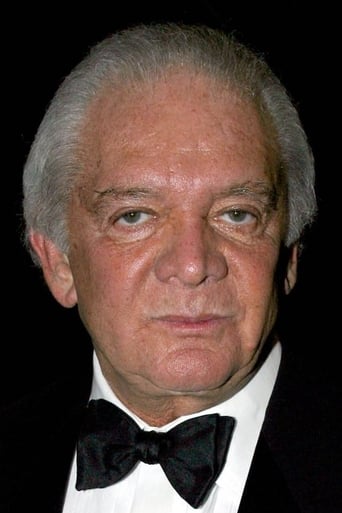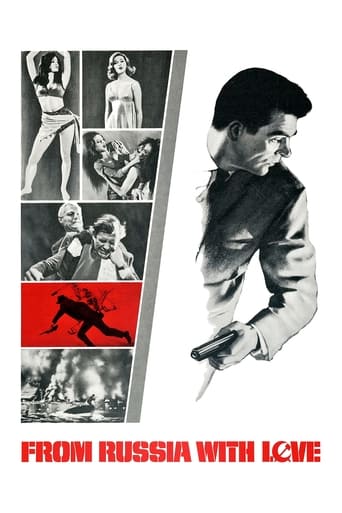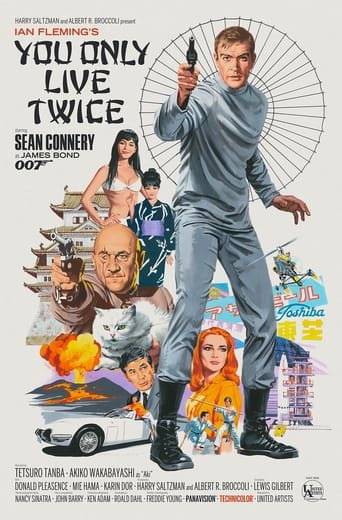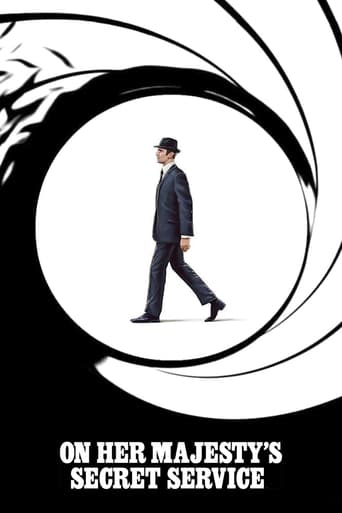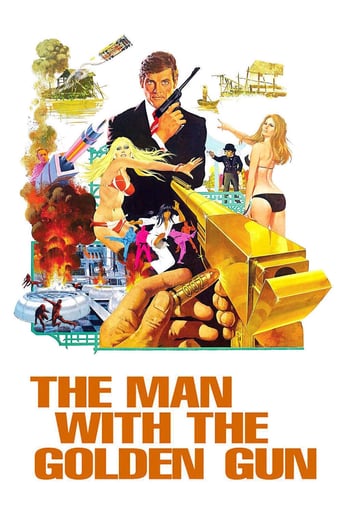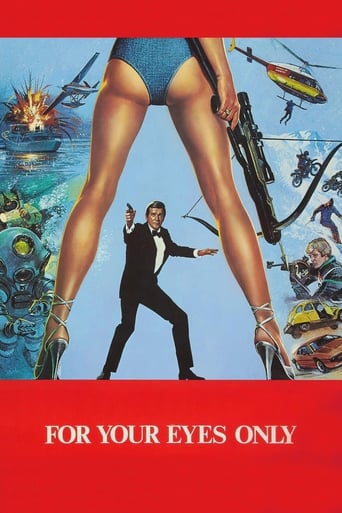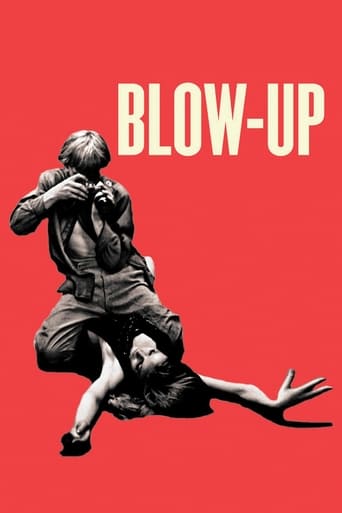
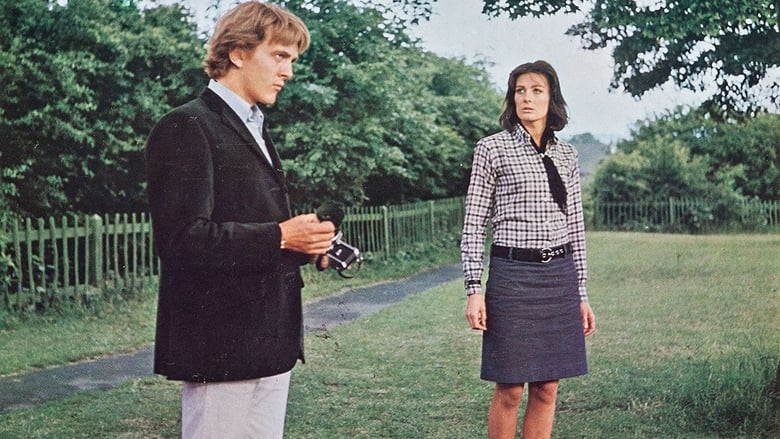
Blow-Up (1966)
A successful mod photographer in London whose world is bounded by fashion, pop music, marijuana, and easy sex, feels his life is boring and despairing. But in the course of a single day he unknowingly captures a death on film.
Watch Trailer
Cast
Similar titles
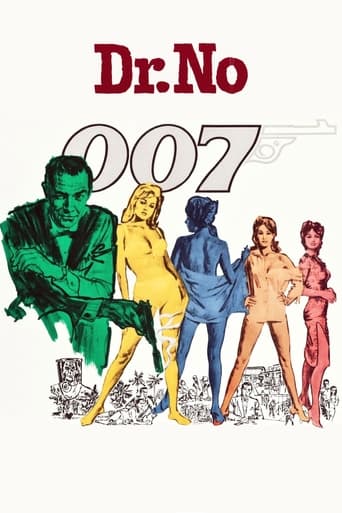

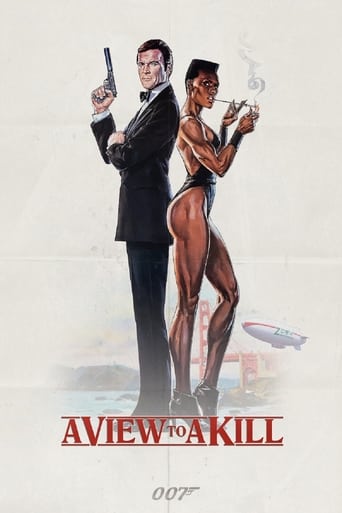
Reviews
Just perfect...
Good start, but then it gets ruined
It’s not bad or unwatchable but despite the amplitude of the spectacle, the end result is underwhelming.
It's simply great fun, a winsome film and an occasionally over-the-top luxury fantasy that never flags.
Don't waste 2 hours of your life on this pretentios arty-fart CRAP. Typical Antonioni, there IS a plot but it only takes up 15 minutes with the rest simply padded out by a series of totally unrelated meaningless scenes. Not much more to be said really apart from a message to those who pretend to see merit in this sort of nonsense - "the King isn't wearing any clothes"
This movie barely has a narrative and is in no way a mystery-thriller. It's at all about a photographer trying to solve a murder he accidentally shot proof of. The murder doesn't happen until halfway in, he doesn't realize it until even later, he makes no attempt at solving it, it's never solved, and apparently it may have never even happened.It opens and closes with a crowd. At the beginning, a crowd of young people runs through the streets cheering. They contrast strongly with everyone else, all of whom walk silently, detached even. A few of them stop at Thomas' car to ask for money. He happily gives them a bill. Later, they put a sign in his car. He makes no attempt to stop them but does nothing to help either; the wind soon blows it out. At the end, they run down the streets cheering until two of them walk onto a tennis court. They are mimes, and they mime playing tennis. The rest of the small crowd is silent, and a few of them appear to be mimes too. Thomas watches from outside the fence, away from the crowd. Eventually one of the mimes hits the ball out of the court. Thomas hesitates, and the mime points to the imaginary ball. Thomas walks over to it, sets his camera down, picks the ball up, and throws it back to them. He grabs his camera and walks away. He is small and alone, surrounded by bright green grass. The crowd at the Yardbirds' concert is much different. They sit in silence while the band plays "Stroll On," which is "Train Kept a Rollin'" but with different lyrics. Only a few in the crowd dance. Jeff Beck breaks his guitar and throws the neck into the audience, and now they come alive. Thomas fights for the neck and is chased out of the building. No one follows him out, and he discards it on the sidewalk. Another man picks it up, then too throws it away.Other peculiar things happen. At the beginning, a model says she's leaving for Paris, and when Thomas finds her at the end and she's still in London, she says she's in Paris. I doubt the weed she's smoking makes her that confused. Thomas says he would be free if only he had more money, yet he drives around in a Rolls Royce. Is this a comment on insatiable greed? Who is murdered, and by whom? Why? Did the girl have anything to do with it? Did the murder even happen? The only thing I saw to suggest that it was all in his mind is the end tennis match. At the very end he hears real rackets hitting a real ball, even though there are none. I don't know what any of this means, but I wouldn't mind watching it again to try and figure it out.The cinematography was frequently beautiful. Maybe the story makes sense once I understand the hidden meaning, or maybe it's empty. Either way, I wish the story at least made sense on the surface. It never bored me, but nothing ever grabbed me either. Still, I feel like I missed a lot, so it warrants a second watch.
OK, is it a mesmerizing and influential piece of cinematic art, or a pretentious pile of deep doo-doo? I'm coming down on the poopy side myself. I can read all the intellectual arguments one can make for this film, but if I have to have it explained to me, and STILL don't understand what the heck was going on, then the picture is a failure, at least for this viewer. Director Antonioni might have signaled his elaborate scheme by having one of the characters state at one point - "It's like finding a clue in a detective story". Oh yeah, well there's all sorts of clues going on, but they don't lead to anything. The corpse in the park should have been one of the biggies, come to think of it, but then it disappeared. Try explaining that one to the cops who come calling. But the cops never did come calling. Oh brother. With a little effort this picture could have worked as a spaghetti Western because it had a man with no name as the lead character (how you get Thomas out of it is another one of those mysteries). The piece de resistance for me was when what's his name and the mime troupe watched the invisible tennis ball go back and forth, and they did it all in coordination! Even Jeff Beck and Jimmy Page ought be embarrassed by this flick, and if they're not, they should be. Where's Clapton when you really needed him?
Hitchock on Michelangelo Antonioni and Federico Fellini: "Those Italian fellows are a hundred years ahead of us. 'Blow-Up' and '8½' are bloody masterpieces".There probably isn't a better way to describe what "Blow-Up" represents. It is film that is so ahead of its time, it remains, now in 2016, something that could still be viewed ahead of us. The timelessness that Antonioni achieves in his directing is sure to make any viewer's mouth drop in awe and when you will reach the end of it, there probably will not be a time where the exclamation "What the hell did I just see?!" could be more suiting.That is probably why reviewing such a film is so difficult. Its surrealism is so shocking and encompassing you are left without words. "Blow-Up" makes you feel and experience, it has a baffling sensuality, there's not much space left for your brain to think too much.This is one of the film that reminds you what directing can be, what it can achieve, but especially, what it consists of. The shots are all so fittingly perfect and complex, this is probably one of the best examples of visual storytelling in the history of cinema. The dialogue barely exists in the film and it is always really disconnected, yet you won't realize this until you think back at it. That is because the cinematography and the editing of the film work together so flawless and ingeniously, you won't think of a void to fill, you will just look at this and constantly feel something happening, the story forwarding, the characters developing.I cannot stress enough how clever the staging is. This is really one of the films that should be studied to become a filmmaker. There is absolutely everything. Actors' blocking, camera movement, editing, story beats, you name it, you will learn it from here. That is why Anotnioni manages to keep your attention spam constantly up, even when a scene on paper would not communicate anything to the viewer, he comes in and stages scenes that could be watched on repeat forever. There's such a rhythm to his editing you cannot possibly take your eyes off screen no matter what's on it.Moreover the way in which every actor, from David Hemmings to the smallest extra, plays the role to perfection is another representation of Antonioni's masterful directing. Of course a lot of the merit has to go to the casting and the actors themselves, yet to me, what it proves the most is how incredibly confident and versed the director is in his vision. He knows exactly what every scene must do to the audience, what and how much information it must convey and he manages to get everything of it, to the the point that there's not a single beat in the film that feels out of place. He manages to give us the only what is strictly necessary to build tension and leaves the rest in a gray area. The effect is a film that constantly feels like it is about to explode, but moment after moment keeps building to the point that if there is one fault it can have is not giving the pay off you wish. Yet that is still disputable since the very fact that there is no pay off is the whole thematic core the film is exploring.It is so mysterious and cryptic there is literally an infinity of interpretations anyone could give that could all be right in their own way. This is an incredibly difficult balance to strike in a film without being annoying and "Blow-Up" does it perfectly. Still, I must say that in these cases movies end up either making your brain explode in curiosity and thirst of knowledge or they leave you slightly wordless and confused. In the case of this one, for me it would be the latter even though it is still quite enjoyable to be left so, I must admit it reaches a level of indecipherability at times that left me scratching my head. Yet, I really look forward to trying and revisit that and break it because whilst some of those moments might have left me puzzled, I cannot ever define myself to have been underwhelmed or bored, on the contrary, I was always thrilled and eager to watch what was going to happen next.Still, the best part has yet to come: this film was made in 1966. To even think that makes my head ache. The surrealism and sensuality, which are without a doubt and almost bluntly the fathers of Sorrentino's cinema today, are so crazily original it is disarming to think someone actually did this such a long time ago since it still feels new and fresh today. That really speaks to the power of the cut and the frame used by Antonioni. Whilst watching it I repeatedly thought that almost every shot in the film could be hung to the wall.I cannot recommend this film enough to any movie fan. No matter if you've never seen older movies or if you think you have seen them all, "Blow-Up" will floor you either way and even better, it will teach you something about filmaking.
